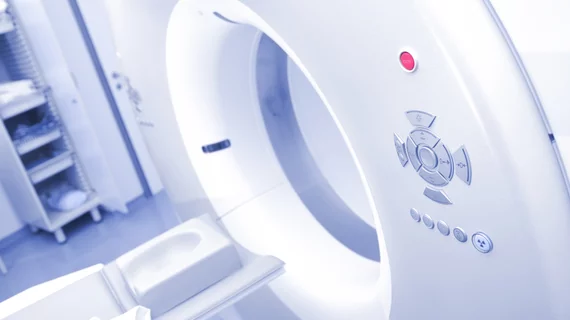Gadolinium-free contrast agent could improve MRI safety
A new manganese-based contrast agent could help limit the use of gadolinium-based contrast agents (GBCAs) and make MRI scans more safe, according to new findings published in Investigative Radiology.
Researchers developed the new contrast agent, Mn-PyC3A, to address the various safety concerns surrounding GBCAs, including the retention of residual gadolinium in the body long after imaging scans take place.
“No confirmed side-effects have yet been irrefutably linked to the long-term presence of gadolinium in the body,” senior author Eric M. Gale, PhD, of Massachusetts General Hospital in Boston and Harvard Medical School, said in a prepared statement. “But, since some people are repeatedly exposed to GBCAs, doctors want to be cautious.”
Mn-PyC3A could be a safer alternative to GBCAs, the authors noted because manganese moves more quickly through the patient’s body than gadolinium. Also, unlike gadolinium, manganese is naturally found in the human body.
The team’s research involved comparing the performance of Mn-PyC3A with GBCAs when it came to the detection of tumors in mouse models of breast cancer and metastatic liver cancer. Overall, Gale et al. found, the contrast agents did a comparable job in terms of tumor contrast enhancement. MnPyC3A was also “more completely eliminated” from the mouse’s body than the GBCAs.

